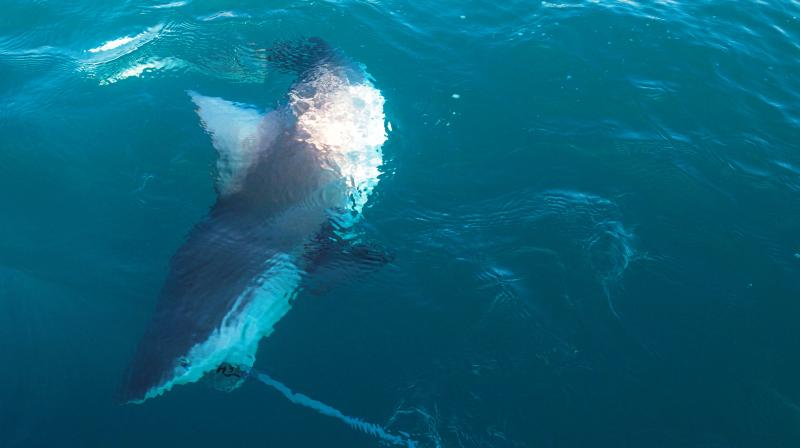Changing shark behaviour in the Mediterranean
Sharks drawn to warm waters by an Israeli coastal power plant.

Hadera: A giant power plant with billowing smoke may not look like the most natural habitat for sea life. But the hot water gushing from an industrial plant in Israel's northern city of Hadera has drawn schools of sharks that are increasingly endangered by overfishing in the Mediterranean Sea. Now the hotspot is also drawing in tourists.
Sandbar and dusky sharks have been sighted around the power plant for decades, but scientists only started collecting data about them two years ago. Although they are still trying to count the smatterings of sharks nearby, researcher Aviad Scheinin said the hundreds flocking exclusively to the Hadera power plant every winter qualifies as "a legitimate and rare phenomenon."
"The paradox that we see here is that this is not a natural environment and you cannot see it anywhere else in the vicinity," said Scheinin, manager of the top predator project at the Morris Kahn Marine Research Station, established by the University of Haifa. "This phenomenon is influenced and created by men, both with the power plant and the sea's increasingly warm water."
The shifting climate of the Mediterranean Sea has been creating a bizarre boon for sharks, which thrive in and chase warm water. Expert say the warm water stimulates shark metabolisms, improves their breathing cycles and facilitates their pregnancies.
"The spectacle is logical, but still very mysterious," said Alen Soldo, co-president of the Shark Specialist Group at the International Union for Conservation of Nature based in Switzerland.
He said the power plant's water temperature, 10 degrees warmer than the rest of the sea, is what likely attracts the sharks to Hadera from deeper, colder waters during the winter season. Beyond this, though, a great deal remains unknown. "We know sharks love this water, and we can hypothesize, but we can't say with certainty exactly why," he said.
Soldo added that although he hadn't heard of sharks congregating at power plants outside Israel, he could name a few other Mediterranean hotspots, such as coral reefs near Beirut, where sharks swarm in a similarly random way, perhaps driven by salinity and temperature levels.
Scientists say the Mediterranean Sea has never been warmer, both because of climate change and the recent expansion of the Suez Canal, which opened the floodgates to Red Sea waters, among the warmest in the world.
A recent study, published last fall in the journal Nature Climate Change, found that climate change is steadily heating the Mediterranean Sea by 0.4 degrees every decade, making the region among the hardest hit in the world.

